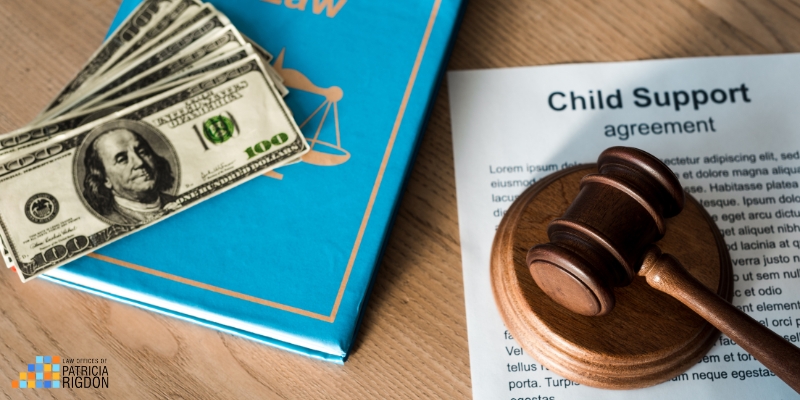
Child support is one of the most significant topics of discussion when it comes to divorced couples and their children. The concept of child support was designed to ensure that all children involved are able to have their basic necessities covered regardless of the shift in their family dynamic. During this process, a parent might wonder, “Can a parent ever choose not to receive child support?” The legal implications of this question present different items to consider. For more insights, consult a Pasadena child support attorney.
The Legal Framework of Child Support
Child support payments are typically mandated by the court as a condition of two spouse’s divorce. Because a child has many needs that still need to be funded, like housing, education, and healthcare, the court wants to make sure that these areas will not be impacted as the child is already trying to process that their parents are divorcing. It’s typically the non-custodial parent who will be ordered to make these monthly payments.
The court prioritizes a child’s needs over the preferences of each parent. This is why child support is often viewed as a right of the child rather than a parental right. When child support is viewed through this lens, it makes a parent’s request to modify or waive child support payments something to be evaluated very carefully.
Can a Parent Choose to Waive Child Support?
While a parent might express a desire to waive child support, and the court will listen to the reasoning behind their request, it’s not something that they will grant easily. If a child support payment was originally issued by the court, it is because they determined that there is an income disparity between both parents and the lower-earning parent needs extra financial support when the child is in their possession.
Even if both parents agree to it, the court may still be reluctant to approve the request if they still have concerns that it will negatively impact the child’s welfare. The court takes its role seriously in advocating for a child, regardless of their parent’s preferences or circumstances.
Reasons a Parent Might Consider Waiving Child Support
There are many different reasons that might motivate a parent to try to waive child support payments in their family law case. For example, the custodial parent might feel that they have enough income to take care of the child and do not need the extra support. This is an especially common request when the divorced couple is still on good terms with one another and genuinely does not want to take advantage of an already difficult situation.
Another example could be one parent who tries to deny receiving these payments in an attempt to maintain a cooperative relationship with the non-custodial parent. They may feel that waiving support could be seen as an attempt to reduce conflict between one another. Sometimes, parents value reducing conflict over making sure they are financially supported, which is why the court will override this request if they feel the child would suffer from waiving these payments.
Long-Term Considerations
If someone chooses not to receive child support payments, there are long-term consequences that need to be taken into account. For example, everyone’s financial status can change over time. What might seem financially manageable at one time can quickly change in the future if the parent has a change in career or is let go from their job. Requesting to waive child support payments could be seen as putting the child’s future security at risk.
In the rare instance that a court agrees to remove child support discussions from the table, it could be difficult to reverse that decision. If circumstances change in the future and one parent decides they now need additional support, they would need to request a child support and custody modification through the court. Revisiting this initial decision can require considerable time and energy to reinstate or adjust these payments, especially in cases involving joint custody arrangements, which often require careful consideration of both parents’ roles. Guidance from a Pasadena joint custody of children attorney can help in navigating these complex modifications.
FAQs: Why California Parents May Choose Not to Receive Child Support
Can You Stop Child Support If Both Parents Agree in California?
Even when both parents agree not to participate in child support payments in California, the court will still need to have the final say. The court’s main focus in these family law cases is to ensure that the children’s lives remain as unaffected as possible. If the court believes removing these payments will impact a child’s access to basic necessities and resources they need to thrive and develop, they will deny these requests, even if both parents are on board.
Can You Give Up Your Parental Rights to Avoid Child Support in California?
If you choose to give up your parental rights in California, this will not automatically eliminate your obligation to pay child support. The concept of terminating parental rights is a serious yet common legal decision that is most often found in adoption cases. Even if your parental rights have been officially relinquished, the court can still require you to pay child support if it’s clear this is the only way the child will have their basic needs financially met.
How Long Does a Father Have to Be Absent to Lose His Rights in California?
California fathers do not automatically lose their parental rights due to being absent for a period of time. However, the other parent might make a motion to request this happen if the father has been absent for a while, has not attempted to communicate with the child, and has not offered any financial assistance. If there is evidence to suggest the father has abandoned the child, the court will be open to exploring the possibility of terminating their parental rights.
How Do I End Child Support?
If you want to end your child support payments, you have the right to make a motion with the court. If you were the parent who was ordered to make these monthly payments but now has full custody, this could likely be an approved scenario. The court will want to hear about these changing circumstances to reevaluate the child’s needs. If you don’t file a motion for this to be considered, the other parent could still enforce the original order.
Contact the Law Offices of Patricia A. Rigdon Today
While understanding and navigating child support decisions and parental rights in California can be overwhelming, it’s important you secure the right legal representation to help make these crucial decisions with as much information and guidance as you can. The Law Offices of Patricia A. Rigdon proudly help parents in distress by guiding them through this process and finding a solution that balances everyone’s needs in the process. Contact us today to learn more.


